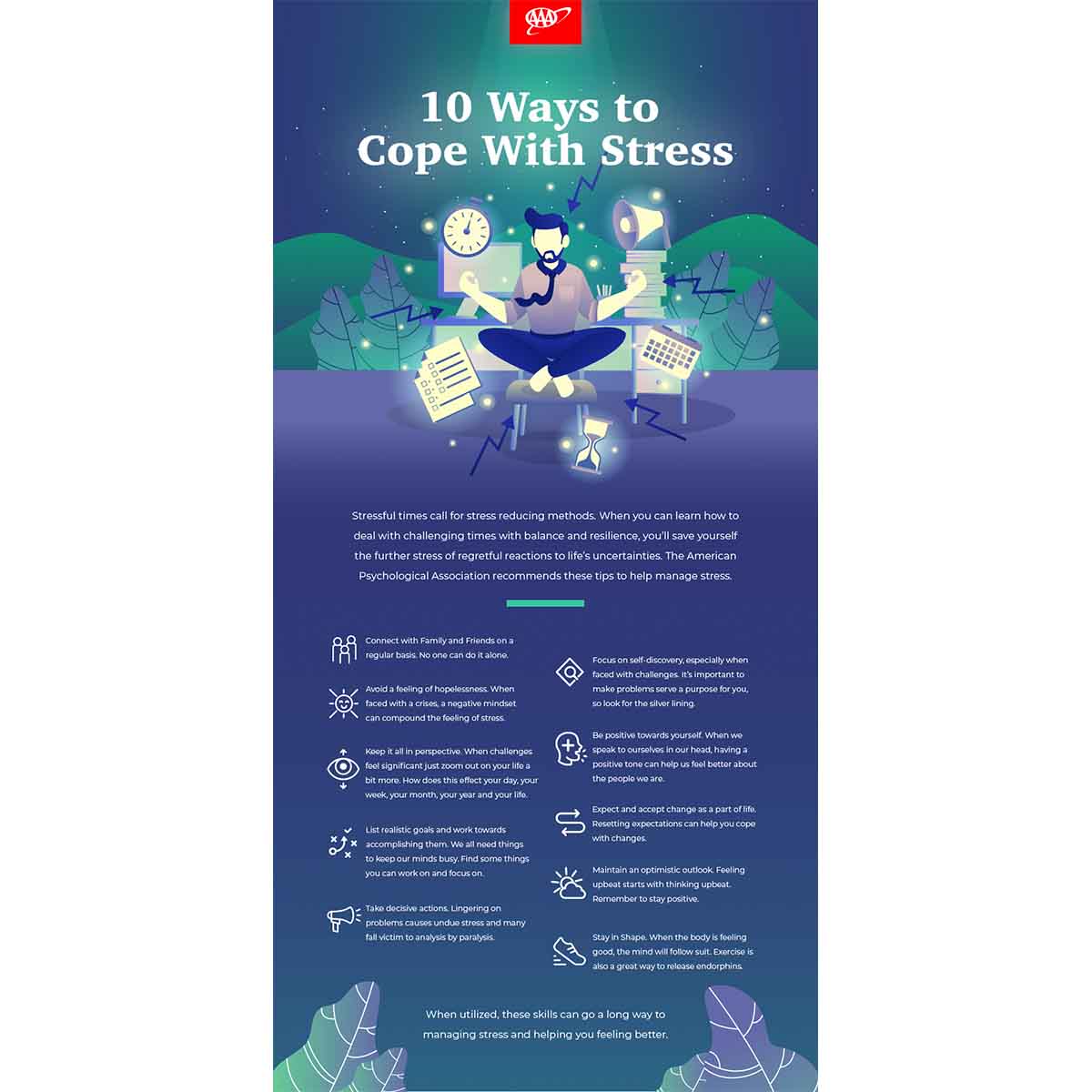The Best Ways to Cope With Stress
How to lose the stress and start winning at life


The holidays can be stressful enough as it is, but with the changes we can expect in 2020, this year could be more stressful than usual. Knowing some stress reducing methods can help you keep your sanity as you decorate, shop, cook, and gather—virtually or in person.
When you can learn how to deal with challenging times with balance and resilience, you’ll save yourself the further stress of regretful reactions to life’s uncertainties. Here are a few tips to help manage stress, as recommended by the American Psychological Association:

Connect with family and friends on a regular basis
Whether you text each other, call, Zoom, FaceTime, or meet in person (socially distant of course), spend some time catching up.
If you can’t get together in person for the holidays, schedule and plan a virtual gathering so everyone is still able to connect with each other. Plan to share a meal together via Zoom, or hop on to play a game or simply chat.
AVOID A FEELING OF HOPELESSNESS
When you’re faced with a crisis, having a negative mindset can make your stress worse. Sometimes the holidays can surface a number of negative or difficult feelings, but don’t let those feelings overwhelm you or control your actions. Set out to have a positive mindset.
Expect and accept change as a part of life
These holidays will likely be different than any we’ve experienced before. While the change can be challenging and even stressful, change is a natural part of life. And, it’s unavoidable. Resetting expectations can help you cope with change.

List realistic goals and work towards accomplishing them
We all need things to keep our minds busy, so find some things you can work and focus on. Make sure the goals are something you can realistically accomplish so you don’t increase stress by trying to work toward something unrealistic. And, try to make the process fun!
Take decisive actions
Lingering on problems causes undue stress, and many fall victim to “analysis paralysis.” Spending too much time thinking about a problem can lead to difficulty finding a solution or taking action, so be intentional with your actions and solving problems.
Focus on self-discovery, especially when faced with challenges
It’s important to make problems serve a purpose for you, so try to always look for the silver lining. Keep a daily journal or a gratitude journal, and spend a few minutes each day writing down at least one thing that went well that day, and one thing you are grateful for.

Be positive towards yourself
When we speak to ourselves in our heads, having a positive tone can help us feel better about the person we are. Studies have shown that being more positive toward yourself can help relieve stress and give you a more positive outlook on life and challenges.
Keep it in perspective
When challenges feel significant, just zoom out on your life a bit more. How does this really affect your day, your week, your month, your year, and your life? Most of the time, something that seems significant at the time is rather insignificant in the scheme of things. Changing your perspective can help keep you from getting overwhelmed and more stressed.
Maintain an optimistic outlook
Feeling upbeat starts with thinking upbeat. Instead of focusing on the negatives, focus on the positives. While this can sometimes be challenging, doing so will almost always make you feel better. For example, instead of being disappointed you can’t have your usual family holiday gathering, instead be grateful you can gather via video call and still enjoy time together.
Stay in shape
When your body feels good, your mind will follow. Exercise is a great way to release positive endorphins, which can help relieve stress.
